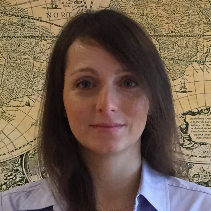2025 FDA Updates
 Keynote Presentation: Clinical Pharmacology Evaluations of Immunogenicity Impact: Ongoing Efforts to Facilitate Harmonization
Keynote Presentation: Clinical Pharmacology Evaluations of Immunogenicity Impact: Ongoing Efforts to Facilitate Harmonization
Yow-Ming Wang, PhD, Associate Director for Biosimilars and Therapeutic Biologics, CDER, FDA
View Agenda
 The Sex Gap in Gene Therapy: How Biological Sex Shapes AAV Immunogenicity from Preexisting Immunity to Innate Activation
The Sex Gap in Gene Therapy: How Biological Sex Shapes AAV Immunogenicity from Preexisting Immunity to Innate Activation
Ronit Mazor, PhD, Principal Investigator, CBER, FDA
View Agenda
 FDA Perspective on Immunogenicity of Gene Therapy Products
FDA Perspective on Immunogenicity of Gene Therapy Products
Anurag Sharma, PhD, Chief, Gene Therapy Branch, CBER, FDA
View Agenda